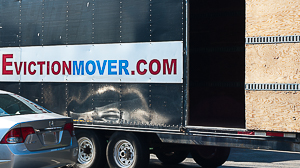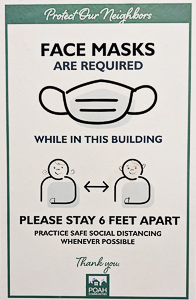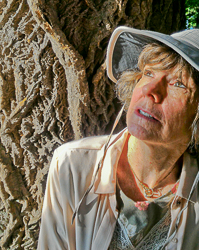Public health in housing for elderly and disabled

Many of the management and community measures that will help to prevent and mitigate COVID are similar to those that can prevent or mitigate bullying in housing.
In November, when the two-week positivity rate was 2.5%, I predicted a rapid rise in COVID and sought protective action by the landlord. Since then, while a wave of COVID has killed and sickened many and threatened to collapse the health care system, I have pressed for action. Four months later, while the wave is subsiding, I am still seeking an effective accommodation to protect my health (and that of all the tenants, staff, and visitors).
January Newsletter, Legislation & COVID

Stop Bullying and Mobbing, the ombuds office bill S1084
Do you want to stop bullying and mobbing in your housing? Use your power to influence legislators. They do listen when we speak up. We are making a push to support S1084 to create an ombuds office to protect elderly and disabled tenants in public and subsidized housing.
And S900/H1407 will help landlords do a better job. S900 & S1084, are complementary, each provides a part of the solution.
Right to Counsel (RTC)
Two identical bills,S.874/H.1436, Senate and House, are designed to establish a pilot program to provide legal counsel to persons facing eviction. Having an attorney will level the playing field.
Reasonable Accommodation Request: Making it Stick
Update, January 13, 2022.
The 14-day positivity rate for Peabody on January 13, 2021, was 21.74%, based on the period from December 26, 2021-January 8, 2021.
The rate for Essex County was 25.78%
Despite the fact that my landlord, Preservation of Affordable Housing, accepted my request for a reasonable accommodation is valid, they did not plan to do an effective accommodation. An effective intervention would be, for example, a zero-tolerance masking requirement that was actively policed and enforced. However, their own policy requires them to enforce the posted masking policy, which to my knowledge, they have not done.
After the December 22 decision of the Peabody Board of Health to require indoor masking, the attorney for Preservation of Affordable Housing wrote yet another letter urging people to be careful. No effective action has been taken.
Advocacy Example: Reasonable Accommodation Request

Update, December 9, 2021.
The 14-day positivity rate for Peabody, reported on December 9, 2021 is 6.48%, covering the period from November 21 through December 4, 2021. This represents an increase of 2.6 times over the rate when I first wrote to my landlord seeking a reasonable accommodation to require enforcement of their own rule, to require masking of all persons in the public areas of the apartment building.
On December 1, I received material from the attorney representing my landlord, POAH, and Fairweather Apartments. The letter was dated 15 November. The letter grants my request of reasonable accommodation, i.e., to require indoor masking to protect against COVID. But they propose to continue the same, previously ineffective actions. What should I do?
Bullying Legislation To Address Public Housing Crisis
At last, a solid, well-researched, in depth article about major issues in public housing, including bullying, has been published by WickedLocal.
The lead article by WickedLocal reporter, Willam J. Dowd, provides an excellent review of the issues around bullying, with interviews and quotes from some of the key players. Against this background, Dowd notes the work of the Stop Bullying Coalition to advance a strong ombuds bill to protect tenants of public and subsidized housing from bullying.
Stop Bullying Coalition Petitions Beacon Hill for Protection
During virtual Beacon Hill testimony before the Joint Committee on Housing on Tuesday, October 12, Jerry Halberstadt and Ms. Kolya Lynne Smith testified on the need to establish an independent, statewide ombuds office to protect elderly and disabled persons who live in public or subsidized housing from bullying, mobbing, and harassment. Their testimonies and that of Ms. Bonny Zeh are available here.
Let's get our rights! with the statewide tenant protective services ombuds program
S.1084 An Act relative to bullying in public housing would establish a statewide tenant protective services ombuds program for elderly and disabled tenants in public and subsidized housing. This legislation should assure protection from bullying and create accountability for landlords. S.1084 must implement and extend the principle stated by the Attorney General—it is unlawful to prevent others from enjoying their rights as citizens and tenants.
Petition for an Effective Ombuds Office
Let us Now Improve Ombuds Bill S1084 for Effective Protection
A well-designed ombuds office is essential to protect the rights and well-being of tenants in public and subsidized housing for elderly and disabled tenants. We have been seeking relief for almost a decade, and we are no longer pleading and petitioning, we now demand legislation to protect our rights.
Testimony for the Joint Committee on Housing
Today we support the bill of Senator Lovely S900, along with Representative Honan’s bill H1443—to provide training, guidelines, and resources. The bills rely on the owner/manager to assure the peaceful enjoyment of all tenants.
We must also have oversight, protection, and hold landlords to account when they fail to collaborate with tenants and build a healthy community.
Testimony of Pamela Goodwin on preventing homelessness

After years of being bullied, harassed, and mobbed, I chose to leave to save myself, spending nearly one year as a homeless person while living in a tent and my car. All of my church friends said I was much happier homeless than being victimized, which I agreed with.
